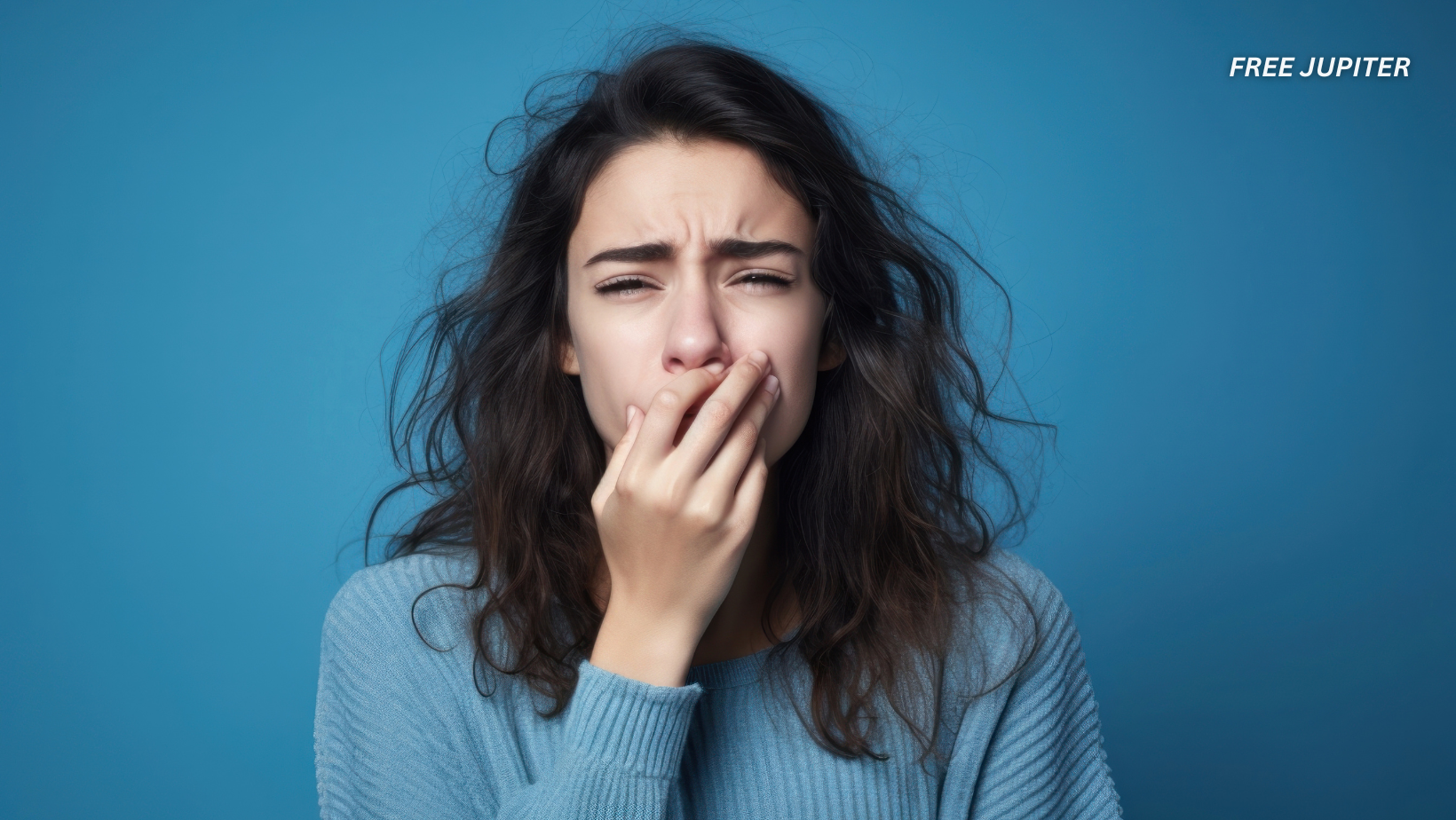We often associate the mouth with eating, talking, smiling, or the occasional dental scolding. But what if this humble cavity also holds clues to something deeper—your mental state? According to a growing body of research, your mouth might not just reflect your diet or dental hygiene habits—it could also whisper signs of depression.
Yes, it sounds a bit strange. But new science suggests that the mix of microbes living in your mouth—your oral microbiome—may be linked to your mental health. Specifically, a less diverse microbial environment in your mouth may be connected to symptoms of depression.
Let’s break it down in a way that makes sense, even if science isn’t your favorite subject.
The Microscopic City in Your Mouth
Inside your mouth right now is a microscopic metropolis. Between your teeth, under your tongue, on your cheeks, and even in your saliva, there are estimated to be anywhere from 500 billion to 1 trillion bacteria.
Before you panic and grab the nearest mouthwash, it’s important to know that most of these microorganisms are actually helpful. They assist in breaking down food, fight off harmful germs, and help maintain the delicate ecosystem that keeps your mouth healthy. In the science world, this collection of bacteria is known as the oral microbiome.
But here’s where it gets interesting: Just like ecosystems in nature, the more diverse and balanced the oral microbiome is, the healthier things tend to be. When diversity drops—meaning fewer types of bacteria are present—the environment becomes more vulnerable to imbalances. That’s when problems can start to show up.
From Cavities to Cravings to Emotions?
We already know that oral bacteria can influence our physical health. Poor oral hygiene has been linked to conditions like heart disease, diabetes, and even Alzheimer’s disease. Now, researchers are turning their attention to mental health—and finding some curious connections.
A new study by scientists at New York University’s Rory Meyers College of Nursing has found that people with depression tend to have less bacterial variety in their mouths. In other words, depression might come with a microbiological footprint—and your saliva might carry some of those clues.
Dr. Bei Wu, vice dean for research at NYU and senior author of the study, explained it this way: changes in the oral microbiome might affect the brain through inflammation or by messing with the immune system. At the same time, people with depression often experience shifts in behavior—like poor eating habits, reduced oral care, increased smoking or drinking, or the use of certain medications—that can also change the microbial makeup of the mouth.
Read more: Increased Screen Exposure In Kids Linked to Anxiety, Aggression, and Self-Esteem Issues, Study Says
The Study: What Did They Actually Do?
This isn’t just guesswork. The NYU research team dug into a rich set of data from the CDC’s National Health and Nutrition Examination Survey (NHANES), which included over 15,000 adults surveyed between 2009 and 2012.
Participants filled out detailed questionnaires about their mental health, lifestyle, diet, and oral hygiene. They also provided saliva samples, which researchers later analyzed using gene sequencing—a fancy way of figuring out which bacteria were present and in what quantities.
What they found was consistent and compelling: People with lower microbial diversity in their mouths were more likely to report symptoms of depression. This wasn’t just a small finding either—the pattern held even after factoring in things like smoking, alcohol use, and dental hygiene routines.
Lifestyle’s Impact on the Mouth-Brain Connection
As with most things in biology, the story isn’t simple.
Several everyday habits can drastically affect the mouth’s microbial ecosystem. For example:
- Smoking introduces chemicals that can kill beneficial bacteria and promote harmful ones.
- Alcohol can dry out the mouth and shift its pH balance, disrupting microbial stability.
- Poor diet, especially high sugar intake, feeds certain bacteria while starving others.
- Neglecting oral hygiene (think: skipping brushing and flossing) allows harmful microbes to flourish.
People experiencing depression may naturally fall into some of these habits—either as a result of the condition itself or as side effects of their coping mechanisms. But here’s the twist: these same habits can also change the microbiome, potentially worsening inflammation, stress levels, and even mood.
It’s a feedback loop, and researchers are still trying to understand where it begins and where it ends.
Read more: A Chemical Found in Acne Medication Can Help Regrow Limbs
Medications and Mouth Bacteria
Another important layer to the study involved medications, especially antidepressants and psychotropic drugs.
These drugs, while often lifesaving, come with side effects—one of which is reduced saliva production. A dry mouth may not seem like a big deal, but saliva plays a vital role in regulating the mouth’s environment. Without it, certain bacteria can thrive while others diminish, once again leading to reduced diversity.
In short, medications might be helping with depression while simultaneously altering the microbial landscape in the mouth. It’s a subtle but significant observation—and it might help explain why treating mental health isn’t always a straight line.
Drawing Connections: Mouth, Gut, Brain
This isn’t the first time bacteria have been linked to mental health. In recent years, the gut microbiome has taken center stage in research about depression, anxiety, and even autism spectrum disorders. The so-called gut-brain axis—a network of chemical signals and nerve connections between the digestive tract and the brain—is now widely accepted as a key player in emotional regulation.
Researchers believe the mouth may also have its own version of this brain-bacteria connection, though it’s less studied.
The theory is that inflammation and immune response triggered by bacterial imbalances in the mouth could eventually affect the brain. Chronic low-grade inflammation, in particular, has been linked to numerous psychiatric and neurological disorders.
So What Does This Mean for Everyday Life?
Let’s be clear: this study doesn’t suggest that skipping your floss routine will give you depression. Nor does it mean brushing three times a day will lift your spirits. But it does point to a more holistic view of health—one where your mental, physical, and microbial health are all interconnected.
If confirmed by further research, these findings could open new doors in how we screen, treat, and understand depression. Imagine a future where a saliva test could help flag early warning signs of mood disorders. Dentists might one day work alongside psychologists, using microbial diversity as a new mental health metric.
It also suggests that oral health may deserve more attention in public health strategies aimed at mental well-being. Brushing your teeth could become more than a cosmetic routine—it might be a tiny act of self-care with far-reaching effects.
Read more: Research Shows That Crows Hold Their Own Funerals When One Of Them Dies
What Comes Next?
Like any good discovery, this study raises more questions than it answers. For instance:
- Could we develop probiotics specifically targeted for the mouth to support mental health?
- Might future antidepressant treatments include a component that stabilizes the oral microbiome?
- Can certain oral bacteria be used as biomarkers for early detection of depression?
These are exciting possibilities, but for now, the field is still in its early stages. More long-term, in-depth studies are needed to confirm the relationship and understand the mechanisms at play.
A Final Thought: Your Body Talks—Even When You Don’t
Depression is a complex, deeply personal experience. It’s shaped by genetics, biology, environment, life events, and now—possibly—tiny organisms living in your mouth.
This doesn’t make the problem smaller. But it does make our understanding of it broader.
So the next time you brush your teeth, remember: you’re not just fighting plaque. You might also be tending to the delicate bacterial balance that supports both your smile—and maybe even your mood.










